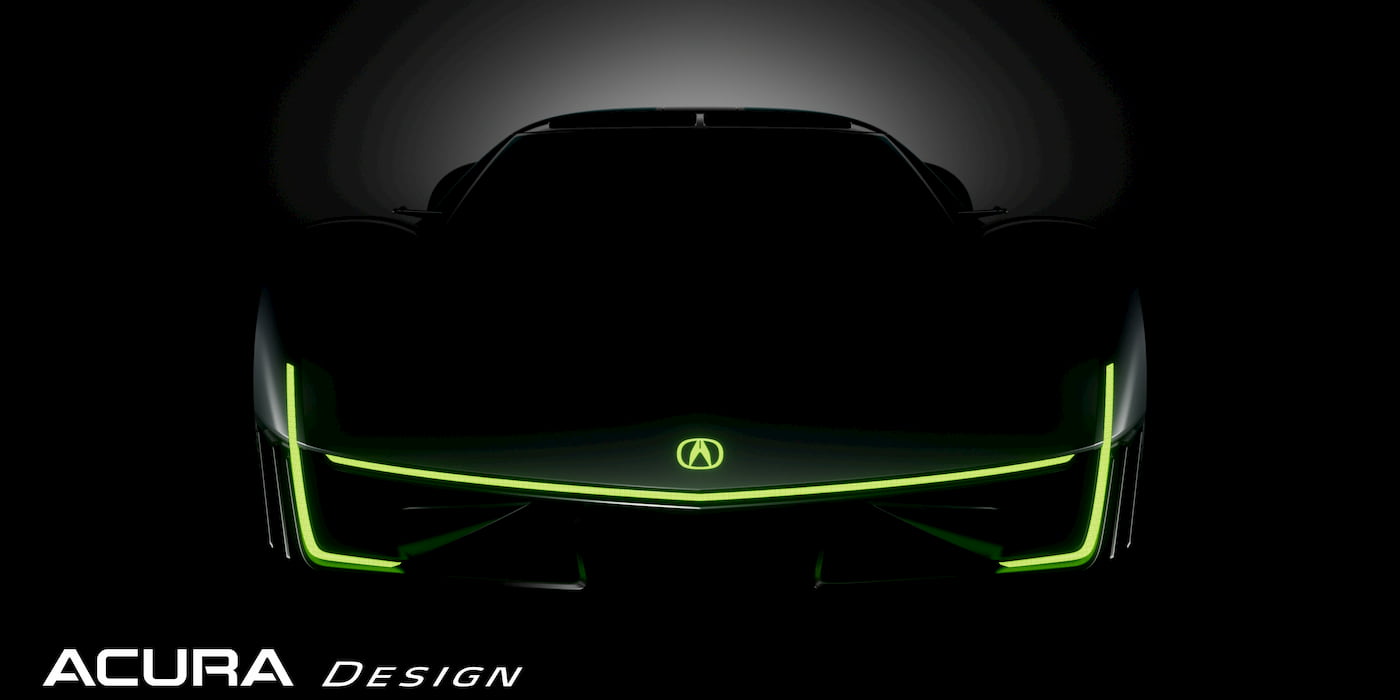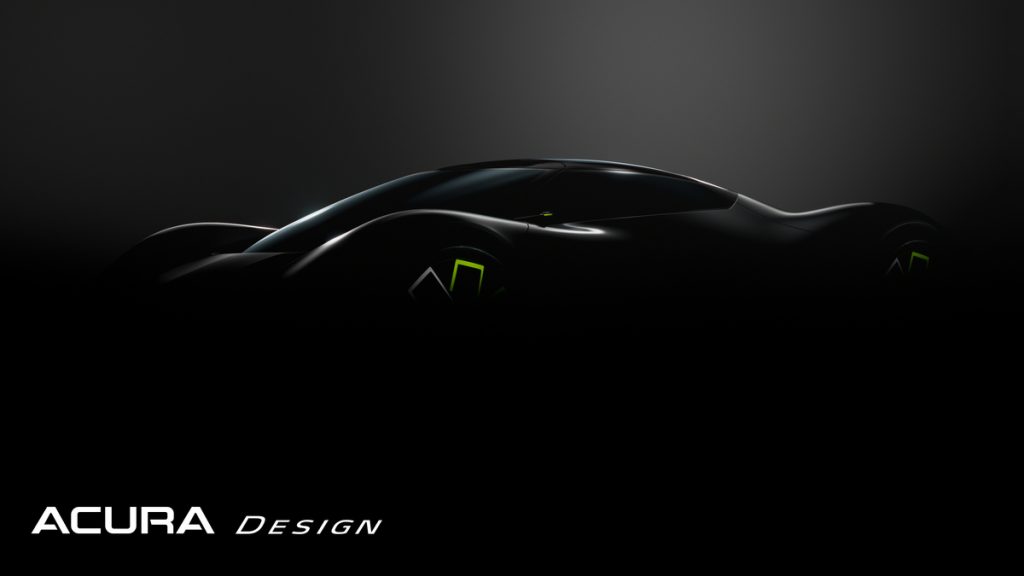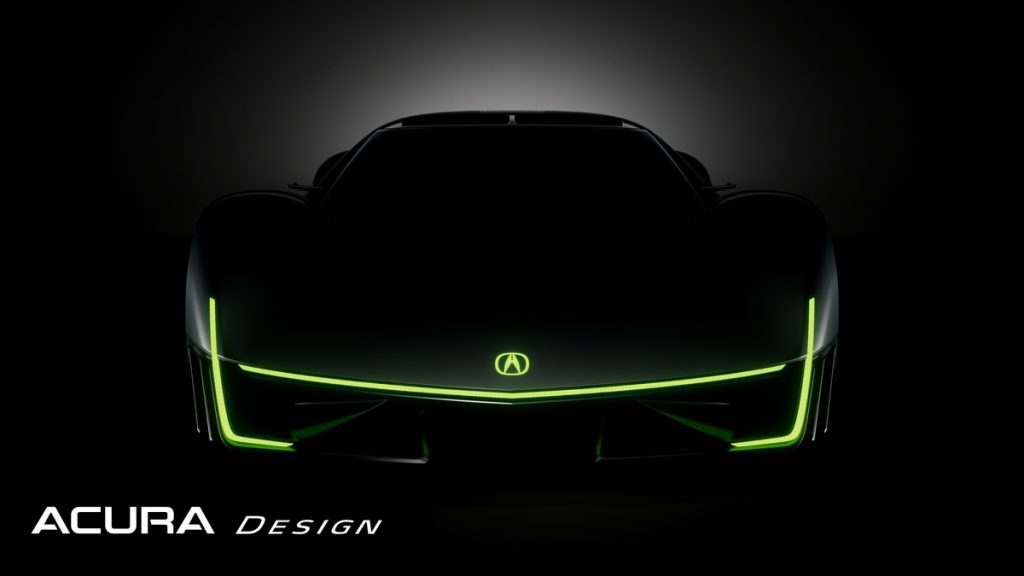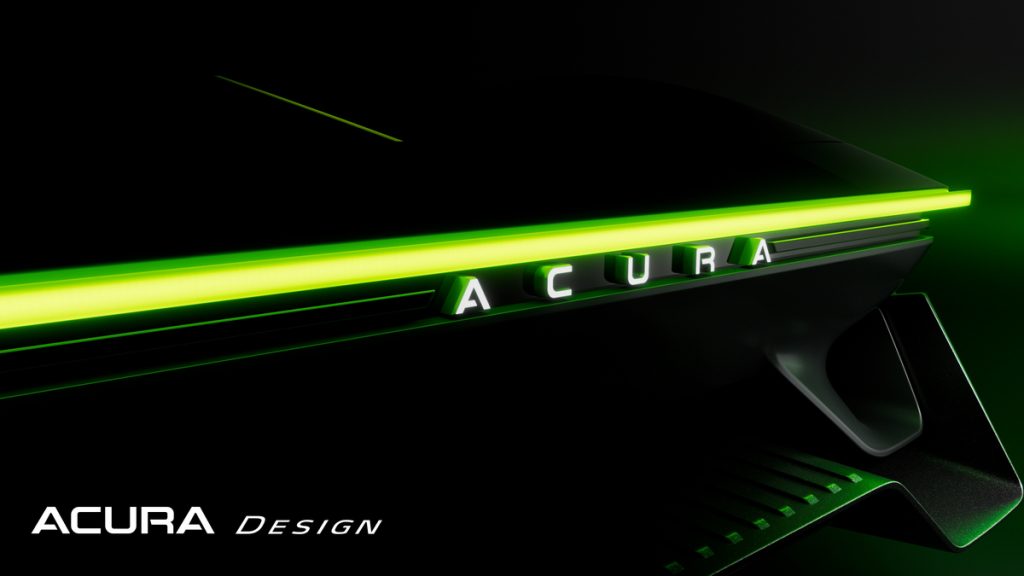
Acura will make an “NSX-type” electric sportscar, expecting to bring it to market in 2027 or 2028, says Acura Global Executive VP Shinji Aoyama.
The Honda NSX sportscar, which was sold in the US as the Acura NSX, made a splash in the 90s and was popular for its styling, handling, and its use of some new technologies like an aluminum monocoque. Its name stood for “New Sportscar eXperimental,” showing Honda’s intent to dive into future technologies with the model.
Then, Acura brought the NSX back in 2016, this time with a 500+hp hybrid powertrain. However, with no plug-in capability at all, and coming somewhat late to market compared to previous plug-in entries like the Tesla Roadster and Porsche 918, the “New NSX” lost some of its “eXperimental” sheen (Honda said the name now meant “New Sports eXperience”). That model ended production in 2022.
But it looks like Acura may be ready to bring its sportscar chops back into the present, with an all-electric “NSX-type” sportscar coming soon.
Yesterday at Monterey Car Week in California, Aoyama told journalists that an NSX-like vehicle will hit the road in ’27-28. He did, however, stop short of saying that the vehicle will be called the NSX, just that it will be a similar style of car.
Acura has already shown an NSX-like concept before. At the last iteration of Monterey Car Week, it teased an “Electric Vision” concept with NSX-like looks, though hadn’t said anything at the time about whether or when it might come to production. It was just a “design study.”
Acura would use Honda’s “0 series” architecture, which is being developed for Honda’s first electric sedan, meant to hit the road in 2026. The focus is on keeping the architecture “thin and light.” Honda wants to ensure that the battery isn’t too tall, because a thinner battery means more cabin space (in a sedan), or lower to the ground (in a sportscar).
Honda/Acura have released one BEV so far in the US, in the form of the Prologue/ZDX. However, this vehicle does not use a Honda platform, and instead is built on GM’s Ultium platform. Honda’s other EV in the US is the CR-V e:FCEV, which has an all electric drivetrain but can be fueled either via a plug or by hydrogen, and is only available in California.
Electrek’s Take
As a Tesla Roadster owner, I’m a fan of EV sportscars. I don’t need the insane performance and horsepower of a 1,025hp Rivian Ascend Quad Max or an 8.56s quarter-mile Model S Plaid, what I want is something small and light.
And there just aren’t many options for that. Part of the reason for this is because batteries are heavy, so it’s hard to make a light EV. But that doesn’t mean it’s impossible – my car is 2,800lbs, and there’s even an electric four-seater available with the same curb weight. (For reference, the original NSX was ~3,000lbs, and the new NSX was ~3,800lbs)
We don’t know yet what form the “NSX-type” EV will take, whether it will be a two door or four door (the previous NSX incarnations have had two doors, and two seats), or any other technologies it will include.



But Aoyama’s comments about keeping it “light” are heartening. This means it may come in closer to the Roadster, or the Caterham Project V, rather than the 4,000lb, four-door Porsche Taycan. Not that there’s anything wrong with the Taycan’s performance, but it’s hard to make a four door that handles like a two door.
And while Honda is late to the party on EVs, it may not be late to the party on EV sportscars. If they can crack the nut of making a reasonably light, sporty EV at a somewhat accessible price point (the new NSX started at $156k in 2017… so maybe not all that accessible), that could be a big statement for the EV industry at the whole. And we’re excited to hear more about it.
